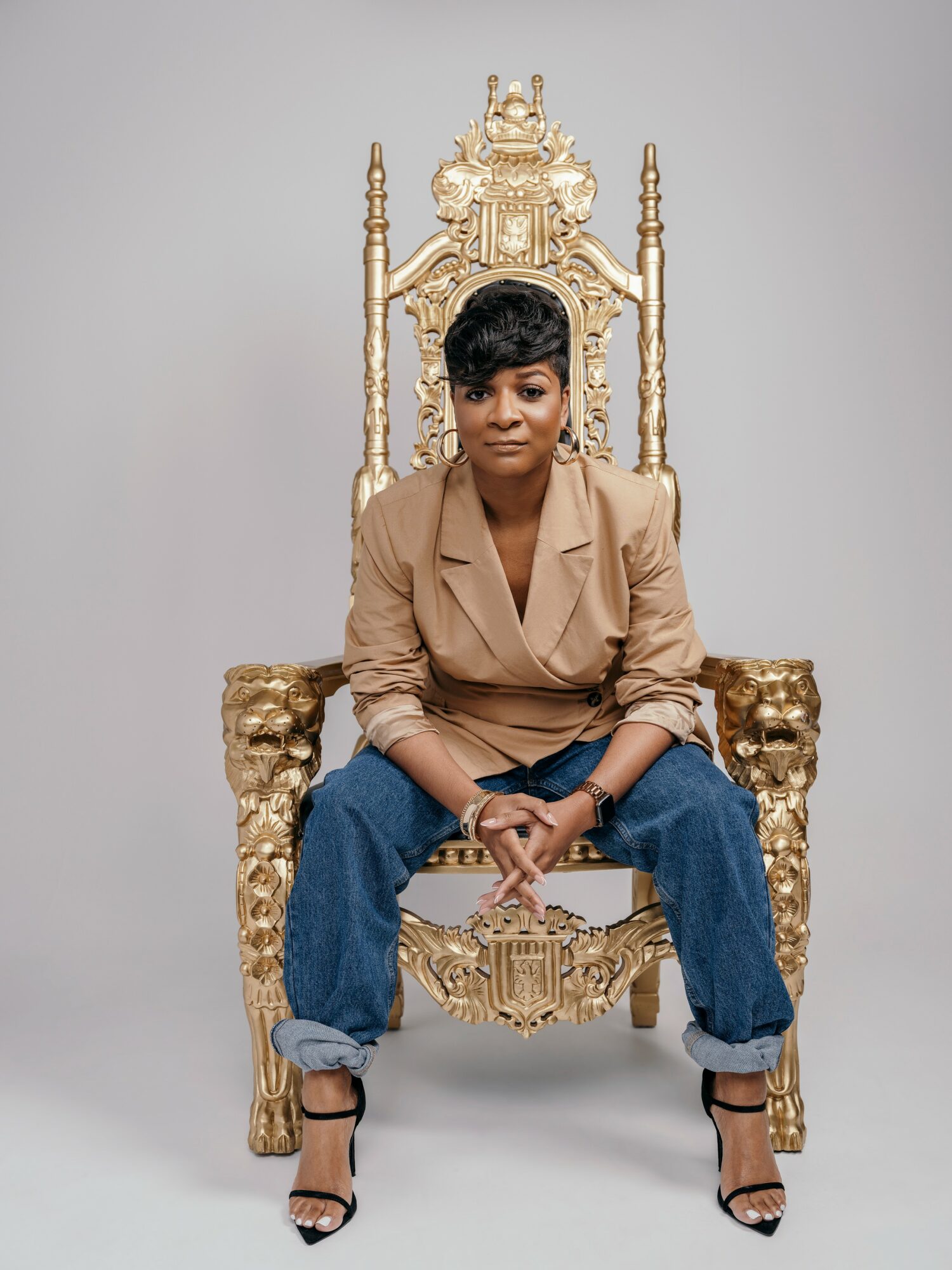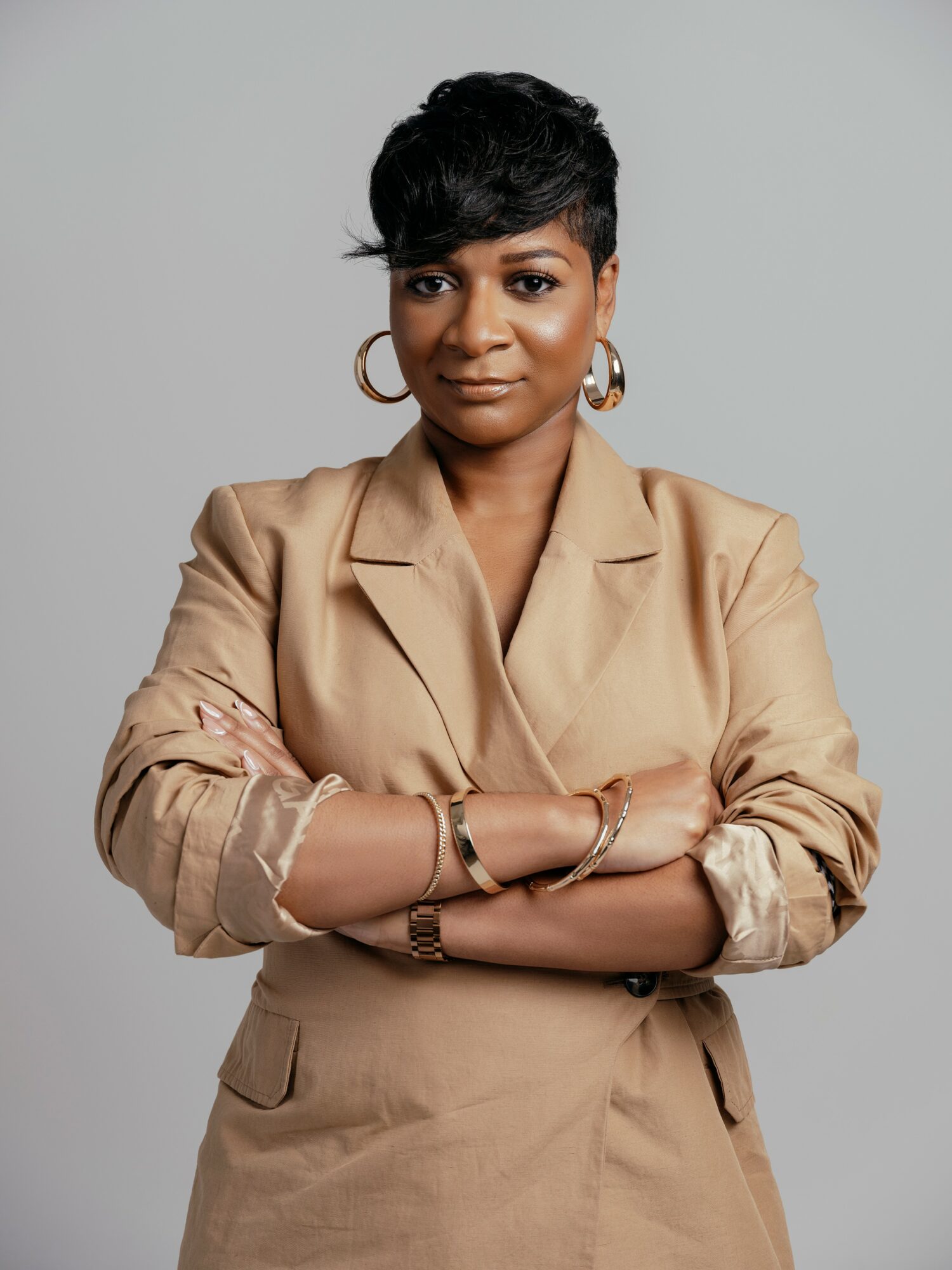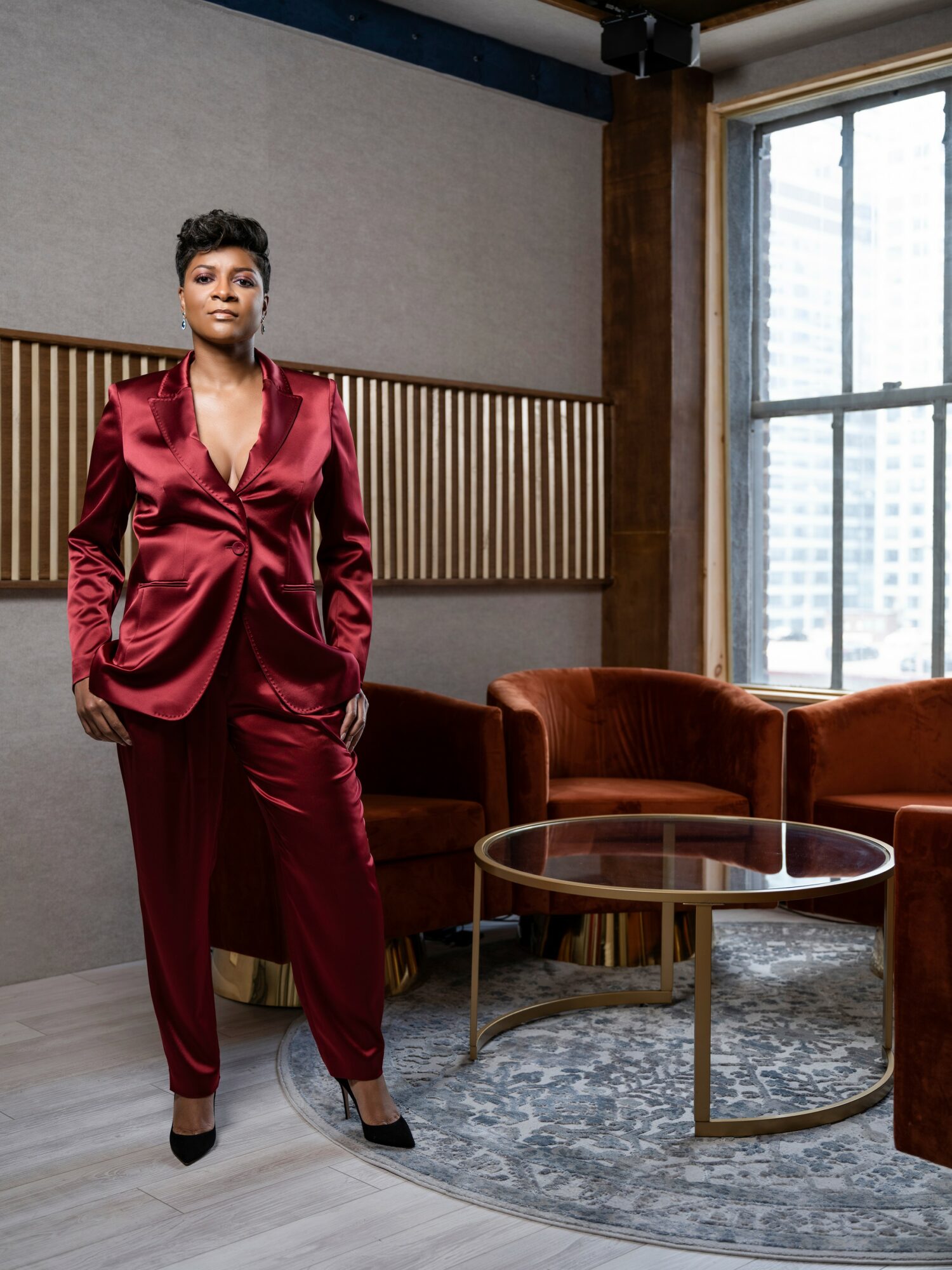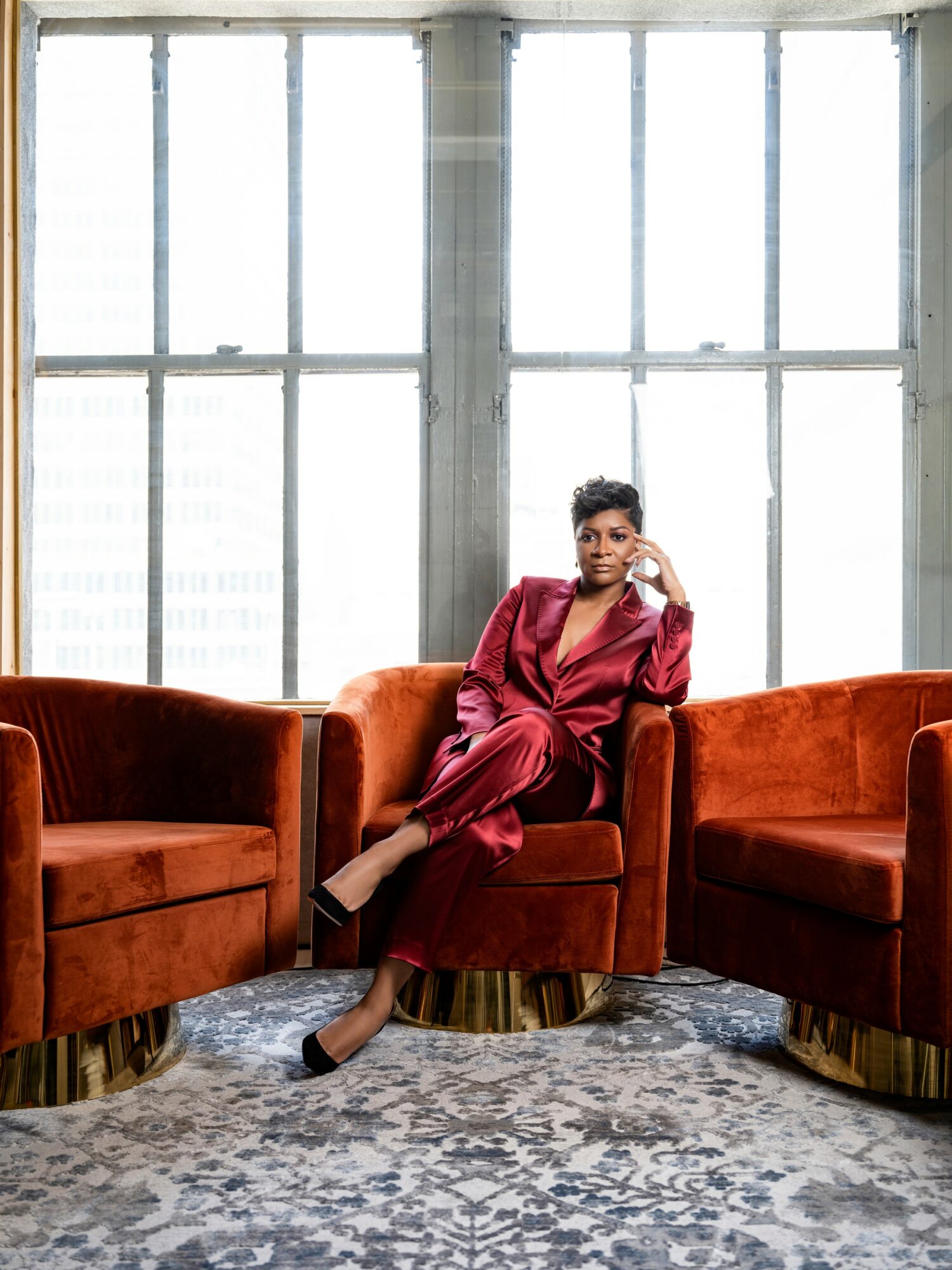

Today we’d like to introduce you to Lauren Carter.
Hi Lauren, please kick things off for us with an introduction to yourself and your story.
My path was untraditional. However, it has turned out to be a blessing in disguise. I started my career as an Executive Assistant for several senior executives. I moved around from fashion, insurance, and legal until I landed in finance for 15 years, and healthcare for three. During that time, I really started to learn about the inner workings of business and what I liked to do. It became an apprenticeship that gave me the expertise and tools to understand how successful companies are built, what makes them valuable in the marketplace and to investors, what makes them fail, and what kind of leaders are required to make them great. In every position, I held, my willingness to take on more than the role I was in required, and learning how to do things outside the scope of my duties provided me with an exceptional business toolkit. The teams and bosses I worked with were willing to answer my questions and allowed me opportunities to utilize what I was learning because they saw that I was ready to jump in and do it. There were many long days, but I looked at it like an education I was getting paid to acquire.
Throughout my career, I was a Project Manager, Process Improvement Specialist, Analyst, Legal Analyst, Business Analyst, Sr. Human Resources Specialist, and ultimately, a Chief Administrative Officer. However, the Great Recession and subsequent health challenges led me to the realization I was better suited to entrepreneurship. I wanted the power to determine who I worked with, where, and when, and to define the diversity of engagements I agreed to. More than that, I wanted the opportunity to build a Black business that could scale and compete on par with other firms in the space and provide the same working environment, quality of work, and compensation that they did.
To me, the path to Black empowerment is not begging to sit at someone else’s table; it has always been in building our table(s) and determining for ourselves what is on the menu and what time dinner gets served.
I’m sure you wouldn’t say it’s been obstacle free, but so far would you say the journey has been a fairly smooth road?
Absolutely not! I don’t think it’s a smooth ride for any business owner. After a while, you accept that this is part of the process. Once you master one business phase, you’re ready to scale to the next and must go through new growing pains. I’ve gone through medical challenges, financial struggles, personal trials, and even those bumpy mental health and self-perception issues that many entrepreneurs have to tackle. But there’s a quality I believe that successful entrepreneurs possess. When the ride gets rough, we don’t jump off; we buckle up and hold on tighter. We are the put your back up against the wall and fight your way through kind of people. And during the fighting, we discover new ways to fight better. We learn new things about ourselves, acquire new skills and insights, develop better relationships and processes, and hopefully, get more explicit about accomplishing our vision. We are warriors. So, the road wasn’t smooth, but it deepened my tenacity, grit, resilience, and commitment to helping other entrepreneurs improve using the things I overcame.
We’ve been impressed with Lauren Ashley Consulting, but for folks who might not be as familiar, what can you share with them about what you do and what sets you apart from others?
In short, I counsel companies and their leaders on how to win, and how they can win using strategy, organizational effectiveness, and risk management to figure out what makes them unique, viable, profitable, scalable, and sustainable, and allows them to survive environmental changes. I’ve developed two frameworks that I’ve found successful in diagnosing business challenges and creating the needed solutions for their success. I’ve helped companies figure out how to stay within their strategic positioning–their unique zone of genius– and still pivot to survive COVID-19. I’ve advised founders to leverage their competitive advantage to communicate deeper value to their customers to extract more revenue from them and hire top talent against larger competitors. And more recently, it’s been preparing many of my clients for inflation and recession since last year when I saw the first concrete signs of economic trouble. Leveraging corporate and business strategic planning and management, I delve into various levels of a company to identify, analyze, and assess where the gaps are in their performance against strategy. We must often address the initial challenge that they never had a strategy, just a collection of plans. Statistics have proven that a significant number of businesses don’t have a strategy. And even the ones that have developed a strategy don’t execute them well. So, I work with companies and their leadership to help them leverage strategy and leadership to beat the statistics on business failure.
For me, I’ve been intentional about working with black-owned businesses. I believe the Black community has a unique opportunity to build wealth at unprecedented levels. About $1 trillion is held by Black households, and there are still opportunities for growth in many sectors. My consulting firm, Lauren Ashley Consulting, offers strategic advisory services through which our businesses can leverage holistic support that understands the unique challenges and possibilities that Black people, in general, and Black business owners, in particular. I desire to help them achieve sustainable growth and long-term strategic advantage. To me, it was a no-brainer to build my business focus there. There was a great appeal to doing business within the Black community as a means of creating economic power that leveraged appropriately creates social and political capital–independent of the whims and machinations of outside forces. We are a growing market and natural customers for many businesses. Yet I’ve found a big disconnect between those who want to reach into the Black community and those who want to do business with Black people–Black companies. My mission is to bridge that gap.
What were you like growing up?
Independent, inquisitive, introspective. I think my parents would agree I’ve been highly self-motivated and determined since I was a toddler. Once I started to read, I realized I had the power to think for myself and that I should. That didn’t come without hard lessons. However, there’s also been a part of me that’s paid that cost to improve myself, hopefully, the lives of others, but ultimately so I can be “free.
My upbringing provided me with a plethora of invaluable lessons that help me today. I grew up in a good neighborhood, so I had the opportunity to be exposed early on to the mechanisms of wealth, politics, and enterprise. Most of the people in the neighborhood were accomplished in their chosen profession, so there were stories of success that one could track and possibly replicate.
My father was a minister and community leader. My mother was a producer, advertising, and sales executive and, at one time, managed a radio station. So, I grew up observing my parents lead at work, church, and in our community. I’d learned Roger’s Rules of Order and could practically run a board meeting before I was ten from watching my father run church meetings. There were nights I would go to my mother’s office as she wrapped a campaign or had to handle a client issue to close a deal. The first entrepreneurial activity I was aware of was when my mother launched our elementary school’s after-school enrichment program. It was a way for the parents to get their kids more extracurriculars and have someplace for them to be for another hour. So, I got to watch how you stand up a new “venture”—find a market problem, develop an offer to solve it, price it competitively, source the talent, and then build out the infrastructure. Without fully understanding but having an awareness, I was learning how businesses operate in the for-profit and nonprofit world.
My father is from Barbados. That afforded me the privilege of observing the immigrant experience. I was very close to my paternal grandmother, so I learned quite a bit from her about the struggles of trying to make it in a different country. I liken it to trying to launch a business in a new market. You can apply Porter’s Five Forces to the experience as a metaphor for the challenges and opportunities one finds as a new entrant to a country. My grandmother also worked with my step-grandfather in a store he opened. My maternal grandfather was active in his Brooklyn neighborhood as a community organizer and police officer. He has a park named after him because of his efforts, and my grandmother was a real estate investor who had to manage tenants and properties. This exposure gave me a well-rounded understanding of various industry and market forces, business applications, working with people, and how to run things and put processes in place to get them done.
Plus, I was blessed to frequent a hair salon filled with successful, intelligent, savvy black women. A gentleman, David, started it; he was like a father to me. He was also one of my first “clients.” But, in that “shop,” I gained so much informal education. Getting to listen in as they discussed their professions and the ups and downs of being in their careers for almost 30 years was a wealth of knowledge. It was a great privilege to sit for hours and learn from some of the best shining black women in business, education, law, real estate, media, healthcare, modeling, fashion…you name it; someone was in the industry and led a business function. It was also a refuge for me during many trying times. And that familiarity of working with someone you feel knows and cares about you is something I try to share with my clients. I want them to feel seen, heard, and understood.
This background greatly informed my decision to become an entrepreneur and drives my passion for the businesses I choose to serve.
Contact Info:
- Website: https://laconsulting.co
- Instagram: https://www.instagram.com/laconsultingco/
- Facebook: https://facebook.com/laconsultingco/
- Twitter: https://twitter.com/laconsultingco




Image Credits
Rayon Richards
Sisi Nike
Kammie Jordan
Weyni Elder













